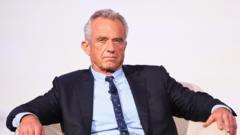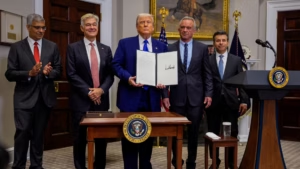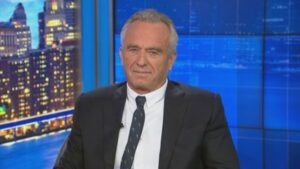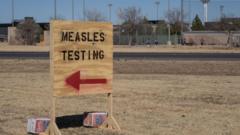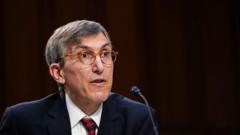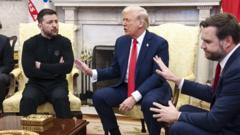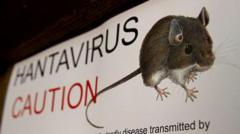Secretary of HHS RFK Jr. plans to push for a ban on pharmaceutical ads, which critics argue could disrupt corporate media funding and enhance investigative reporting on pharmaceutical practices.
RFK Jr. Proposes Nationwide Ban on Pharmaceutical TV Advertisements
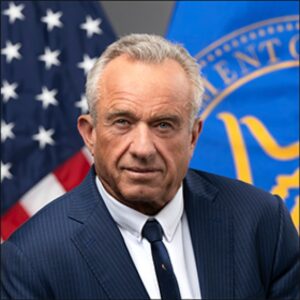
RFK Jr. Proposes Nationwide Ban on Pharmaceutical TV Advertisements
Secretary of Health and Human Services Robert F. Kennedy Jr. is advocating for a significant ban on pharmaceutical advertising on television, aiming to reshape the relationship between Big Pharma and the media.
According to multiple reports, HHS Secretary Robert F. Kennedy Jr. is preparing to push for a nationwide ban on pharmaceutical advertisements on television—a move that some argue could trigger a monumental societal shift. RFK Jr. has consistently criticized the influence of Big Pharma over public health and media outlets. Should this ban be successfully implemented, the United States would join the majority of countries that already prohibit direct-to-consumer pharmaceutical advertising.
Political commentator Liz Wheeler warns of two significant consequences following this potential ban. Firstly, she states that corporate media would face severe economic repercussions. “Mainstream media is just a fake business,” Wheeler claims, asserting that it is financially propped up by Big Pharma's advertising expenditures rather than genuine viewer interest or return on investment. According to her, these ad purchases serve not merely for marketing purposes but also to suppress critical reporting about the pharmaceutical sector. Without billions in advertising revenue, Wheeler predicts that networks may confront financial crises leading to mass layoffs, termination of prominent anchors, or even complete shutdowns.
Secondly, Wheeler posits that the absence of such financial backing might lead to a new era of truthful reporting in the media. Freed from the constraints of pharmaceutical influence, she anticipates that the public would gain access to real investigative journalism focused on issues like pharmaceutical corruption, vaccine safety, and the roles of key medical organizations and regulatory agencies, such as the CDC, FDA, and AMA. “It was a money laundering scheme all along to keep reporters silent about the abuses coming out of pharma,” Wheeler asserts.
If RFK Jr.'s policy is enacted, it may expose the entrenched relationship between Big Pharma and major media organizations, possibly paving the way for previously suppressed reporting to finally emerge.


